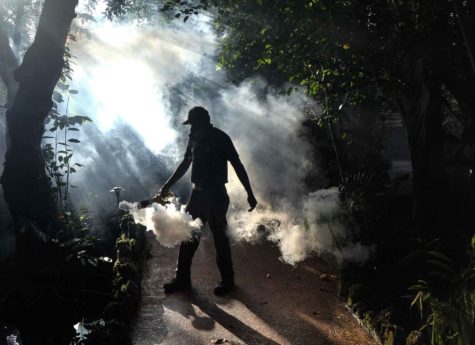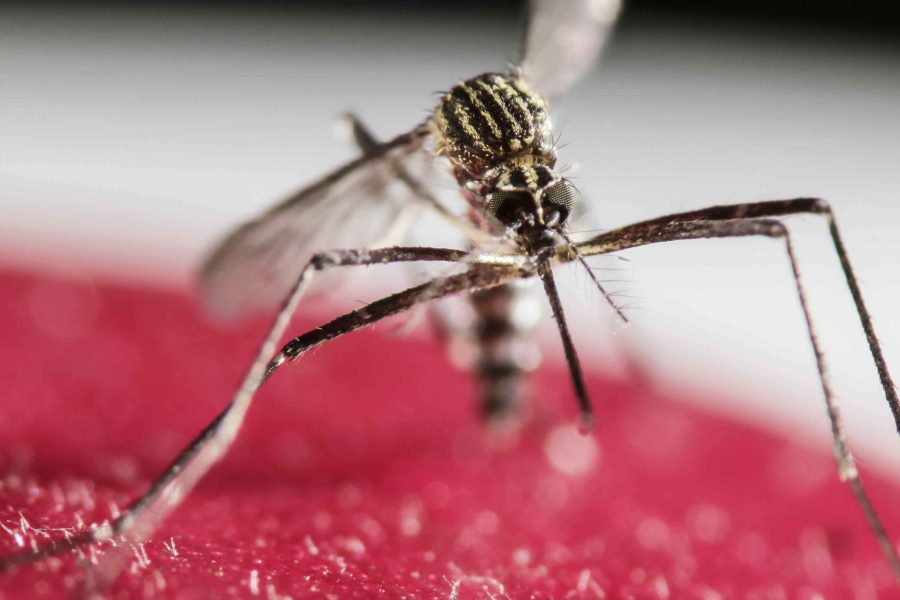FDA recommends donated blood be tested for Zika virus
(Jeffrey Arguedas/EFE/Zuma Press/TNS)
August 26, 2016
BALTIMORE — The FDA says the nation’s blood supply should be checked for the Zika virus.
As Zika infections continue to spread around the nation, the U.S. Food and Drug Administration is recommending that all donated blood and blood components be tested for the mosquito-borne virus.
The revised guidance expands on a recommendation earlier this year by the FDA recommending that “only areas with active Zika virus transmission screen donated Whole Blood and blood components for Zika virus.”
Advertisement
It will be one more virus, in addition to those for HIV, hepatitis and a small number of other infections, that blood banks and groups such as the American Red Cross will have to test for when they collect blood and blood component such as platelets.
MORE: Zika flourishes in the vagina, study finds
The FDA already required testing for nine types of viruses, contaminants or antibodies.
The FDA estimates about 1 million units of blood are donated a month nationwide. The cost of adding Zika tests aren’t yet known, but FDA officials said the move is essential because the problems caused by the virus are so serious and scientists are continuing to learn about other affects.
“There is still much uncertainty regarding the nature and extent of Zika virus transmission,” Dr. Peter Marks, director of the FDA’s Center for Biologics Evaluation and Research, said in a statement. “At this time, the recommendation for testing the entire blood supply will help ensure that safe blood is available for all individuals who might need transfusion.”

The primary concern is pregnant women and women who plan to become pregnant because Zika is known to cause microcephaly, which stunts the brains and skulls of fetuses in infected women. But other brain damage as well as other impacts on babies, as well as to adults, are being investigated.
The earlier FDA guidance on Zika testing, issued on Feb. 16, had also recommended that blood donor centers “use pathogen-reduction devices, or halt blood collection and obtain Whole Blood and blood components from areas of the U.S. without active virus transmission.”
Advertisement*
The FDA said all areas with active transmission in the U.S. were in compliance with the original guidance.
Marks said that Puerto Rico has already been testing for Zika in its blood donations, as had Florida, the only mainland state to report cases of infection from the bites of local mosquitoes. One infected unit was found in recent weeks in Florida and removed from the blood supply, Marks said.
FDA has recommended 11 other states begin testing in the next month and the rest of the country begin testing within 12 weeks.
There have been 2,517 cases of Zika reported to the U.S. Centers for Disease Control and Prevention from around the nation, though officials say only about 20 percent of people have symptoms so many more have likely not been tested.
Marks said the concern is that they have been unknowingly infected and give blood. Researchers are finding the virus present in semen for six months, putting blood donations from men especially concerning.
___
(c) 2016 The Baltimore Sun
Visit The Baltimore Sun at www.baltimoresun.com
Distributed by Tribune Content Agency, LLC.
Advertisement







